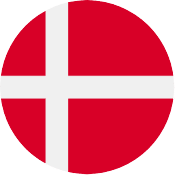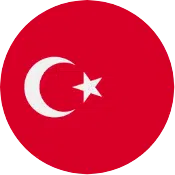Portuguese Language Facts
If you’re thinking about learning Portuguese it’s always good to know a little about the origins and history of the language you are learning. Here, Cactus Language offers up our most interesting Portuguese language facts:

5 Interesting Portuguese Language Facts
1. Portuguese is a Romance language
Portuguese is derived from Vulgar Latin and Medieval Galician. After becoming the language of Portugal, it spread worldwide when Portugal developed its colonial empire, including in Brazil. The differences between European Portuguese and Brazilian Portuguese emerged in the 18th century, with Brazilian Portuguese being heavily influenced by Italian and other non-Portuguese colons.
2. Portuguese is ranked as the sixth most natively spoken language in the world
Portuguese is spoken by 260 million people worldwide. This number is expected to grow as Portuguese is the fastest-growing European language after English. Not only Portuguese is spoken in Portugal and Brazil, but it is also an official language in African and Asian countries, including Angola, Cape Verde, East Timor, Guinea-Bissau, Mozambique, São Tomé and Príncipe.
3. Portuguese has some popular tongue twisters
Some of the most difficult and popular Portuguese tongue twisters include:
- O rato roeu a roupa do rei de Roma – The rat gnawed the king of Rome’s clothes.
- A aranha arranha a rã. A rã arranha a aranha – The spider scratches the frog. The frog scratches the spider.
4. Portuguese has influenced English and other Western languages
Words originating from the Portuguese exploration and used nowadays in English include flamingo, cobra and piranha.
5. Until recently, the letters k, y and w were absent from the Portuguese alphabet
Owing to the strong influence of English, they have been added to write foreign names.
How to book with Cactus
Select language
Simply select which language you would like to learn and from the box below and click lets go.
Take level test
This is a quick test to help you find the right course for your current level of knowledge.
Book your course
Use our simple online booking system to select your course.
Frequently asked questions
What will I learn?
Our Course Outlines give an overview of the content and learning framework of Cactus courses. Includes themes, grammar and vocabulary you can typically expect to cover. These are intended as a guide only. Language teachers may at times adapt the course content to suit the specific level, aims and interests of the class.
How do I know what level I am?
Are you unsure where to start or progress to? Then take our level test and read our level descriptions for guidance.
Do I receive a qualification or certificate?
At the end of your course you receive a certificate of participation. You will be able to be download it from your MyCactus account. This confirms the language and level of course you have taken. Our course levels are based on two internationally recognised systems. You will have a universally accepted reference for your studies. (Important: Please note that you must complete the end of course questionnaire sent to you to be able to get your certificate! You will receive the course questionnaire by e-mail at the end of your course.)
Do I need a course book?
You will need a course book to attend your course. Course books are not included in the course fees. We recommend that you buy your own course book separately before your course starts. We will let you know which course book you will require and advise where you can purchase this. Please note that a course book often covers more than one level. So if you progress to the next course, you may not necessarily need to buy a new book. Again, we will advise you of this at the time. The course book is chosen by our teachers and academic team. This is based on which book is most suitable for the level of the class whilst offering the most communicative approach.
Still have questions?
Sign up for our offers
Exclusive discounts on your course with Cactus directly on your inbox!


 Portuguese
Portuguese French
French German
German Italian
Italian Spanish
Spanish Arabic
Arabic Cantonese
Cantonese Czech
Czech Croatian
Croatian Danish
Danish Dutch
Dutch English
English Greek
Greek Hebrew
Hebrew Hindi
Hindi Japanese
Japanese Korean
Korean Norwegian
Norwegian Polish
Polish Russian
Russian Swedish
Swedish Thai
Thai Turkish
Turkish Ukrainian
Ukrainian